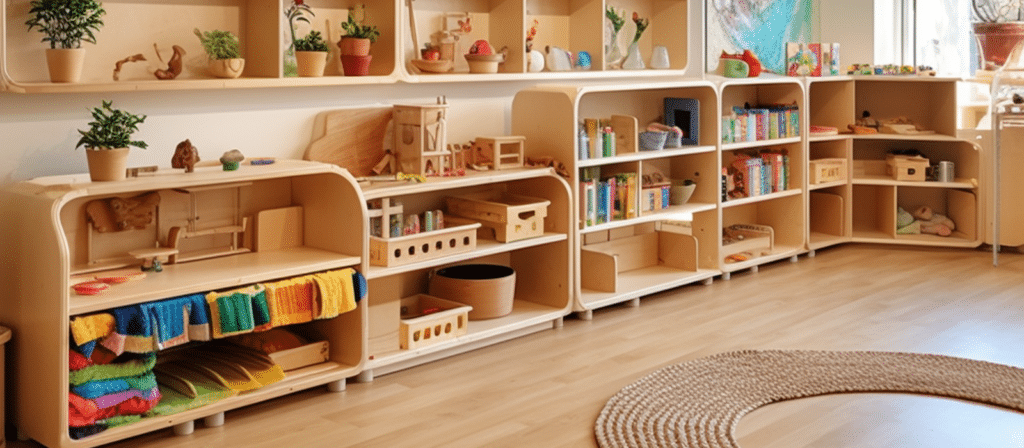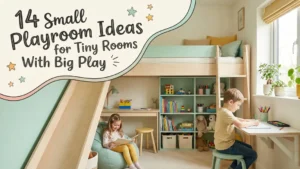Are you interested in how Montessori furniture can play a crucial role in nurturing fine motor skills in children? Join us on a journey to explore the fascinating world of Montessori furniture designed to enhance fine motor skill development.
Montessori Furniture for Fine Motor Skill Development is a carefully crafted aspect of Montessori education that focuses on promoting the refinement of children’s motor skills, such as hand-eye coordination and finger dexterity. These skills are fundamental for a child’s overall development and lay the foundation for various aspects of life.
What are fine motor skills?
Fine motor skills involve the coordination of small muscles in the hands and fingers, which are essential for tasks such as writing, drawing, and manipulating objects. Developing strong fine motor skills is crucial for children as they grow and learn. These skills lay the foundation for more complex tasks in the future.
How can Montessori furniture help?
Montessori furniture is designed with the specific goal of promoting independent learning and development in children. It encourages them to explore and engage in activities that enhance their fine motor skills. From child-sized tables and chairs to shelves with accessible materials, Montessori furniture creates an environment that fosters hands-on learning.
Montessori furniture is designed to be child-sized and accessible, allowing children to independently choose and engage with materials that interest them. This freedom of choice and movement promotes self-confidence and autonomy, which are essential for fine motor skill development.
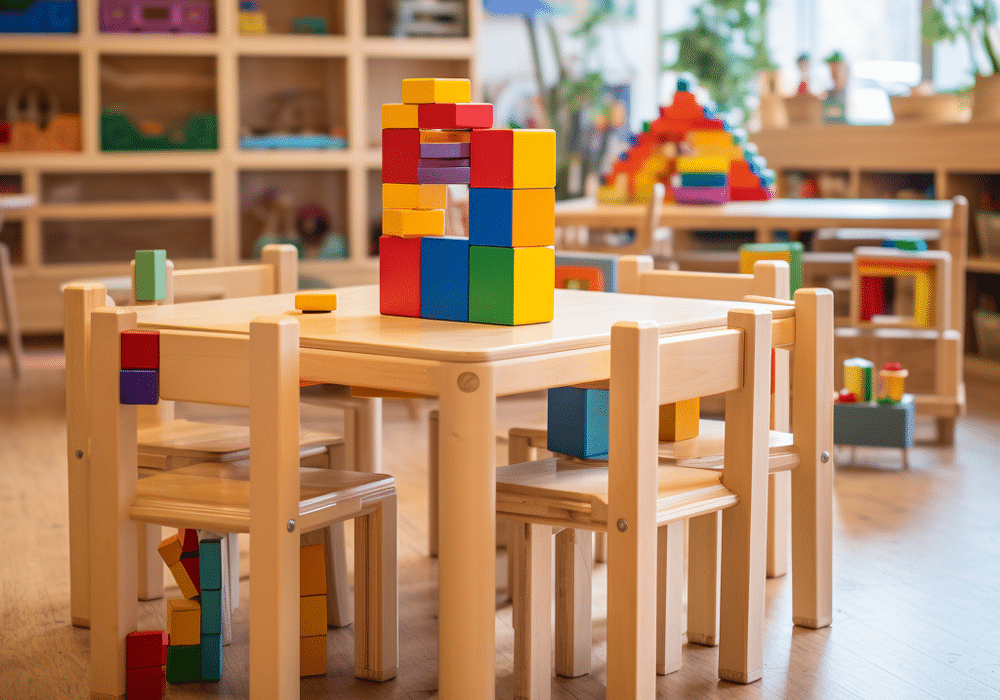
What are some examples of Montessori furniture for fine motor skill development?
- Low shelves with open baskets: These shelves allow children to easily see and access materials such as puzzles, blocks, and art supplies. The open baskets make it easy for children to pick up and put back items, promoting hand-eye coordination and finger dexterity.
- Child-sized table and chairs: Having furniture that is proportionate to a child’s size encourages proper posture and promotes the use of fine motor skills during activities such as drawing, writing, and playing with manipulatives.
- Practical life materials: Montessori classrooms often include practical life materials such as pouring, spooning, and transferring activities. These activities help children refine their fine motor skills by using tools and utensils to complete everyday tasks.
Why is fine motor skill development important?
Fine motor skills are essential for a child’s overall development. They not only enable children to perform everyday tasks independently but also play a crucial role in cognitive development. Fine motor skills are closely linked to handwriting, hand-eye coordination, spatial awareness, and problem-solving abilities.
By providing children with the right environment and tools to develop their fine motor skills, we are setting them up for success in various areas of their lives. Montessori furniture plays a significant role in creating this environment.
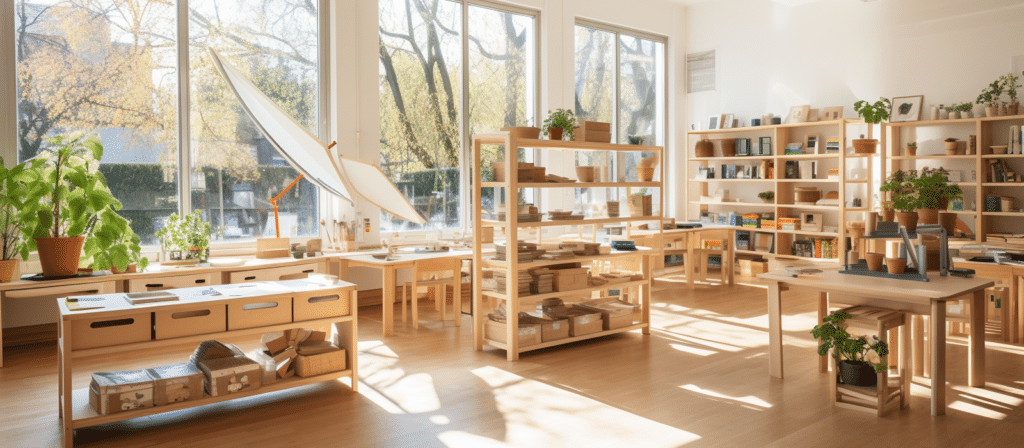
How does Montessori furniture promote fine motor skill development?
Montessori furniture encourages active engagement and hands-on learning, which are key to developing fine motor skills. By providing child-sized furniture and materials, children can independently choose and engage with activities that interest them, allowing for the repetition and practice necessary for skill development.
The materials and furniture in a Montessori setting are carefully chosen to support specific fine motor skill development. From pouring activities that enhance hand-eye coordination to puzzles that improve finger dexterity, each piece of furniture and material serves a purpose in promoting fine motor skills.
How does Montessori furniture differ from traditional furniture?
Traditional furniture is often designed with adults in mind, making it challenging for children to use comfortably. The size and proportions of traditional furniture can hinder children’s ability to engage in activities that promote fine motor skill development.
On the other hand, Montessori furniture is specifically tailored to meet the needs of children. It is designed to be child-sized, allowing children to easily access and interact with the materials and activities. This promotes a sense of independence and encourages children to engage in hands-on learning experiences.
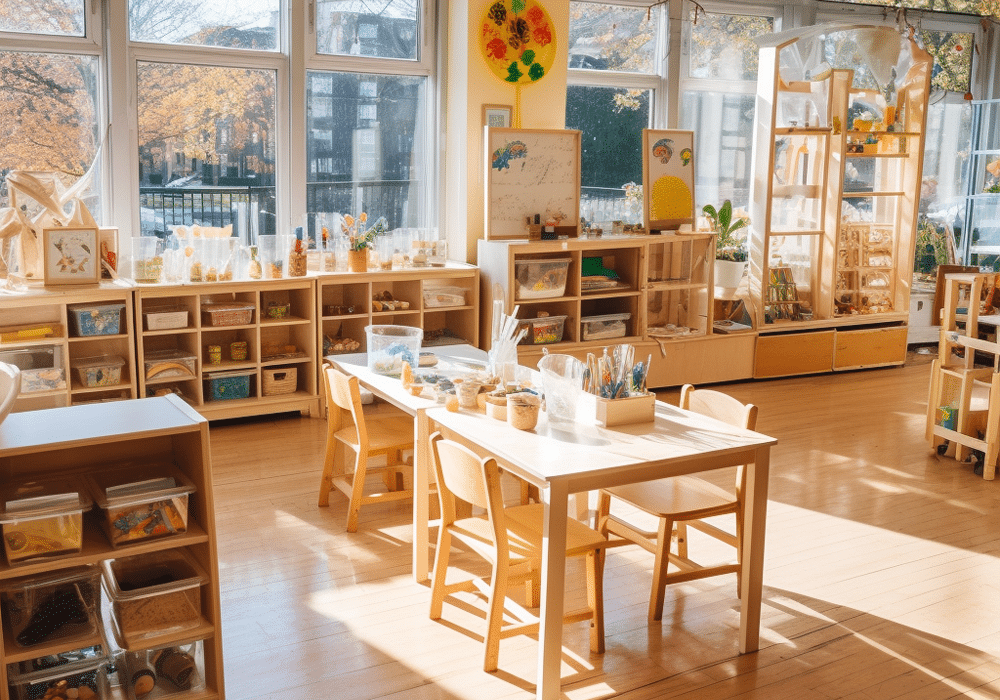
Are there any studies supporting the use of Montessori furniture for fine motor skill development?
Numerous studies have highlighted the benefits of Montessori education, including the use of Montessori furniture. One study conducted by researchers at the University of Virginia found that children who attended Montessori schools showed significant gains in fine motor skills compared to their peers in traditional education settings (source).
Another study published in the Journal of Occupational Therapy in Schools and Early Intervention found that the use of Montessori materials, including furniture, positively impacted children’s fine motor skill development (source).
These studies reinforce the effectiveness of Montessori furniture in promoting fine motor skill development and highlight the importance of incorporating such furniture into educational settings.
In conclusion
Montessori furniture offers a unique and effective approach to fine motor skill development. By providing child-sized furniture and materials, it creates an environment that promotes independent learning and fosters the development of fine motor skills. Investing in Montessori furniture can have a significant impact on a child’s overall development and set them up for success in various areas of their lives.

